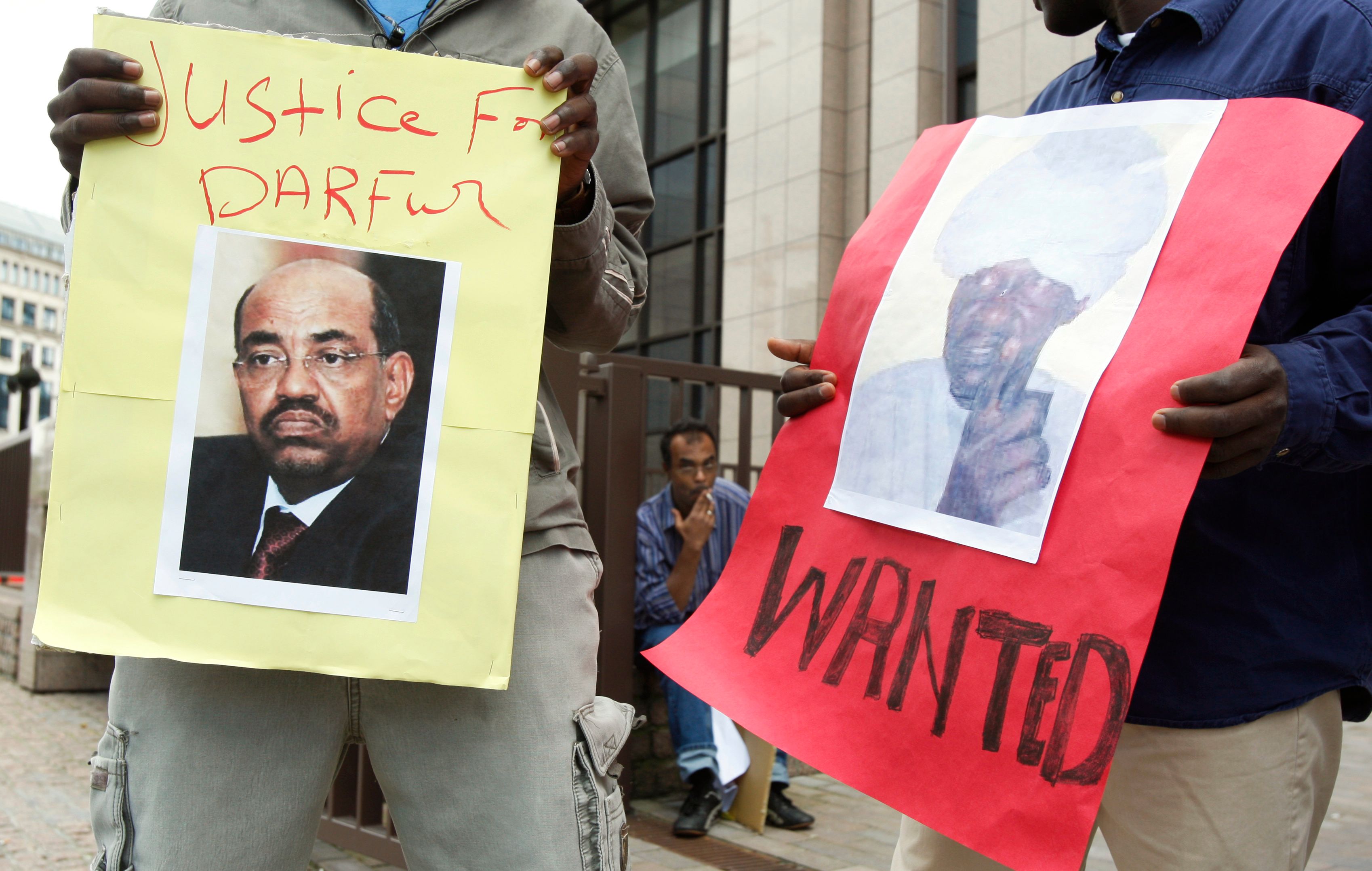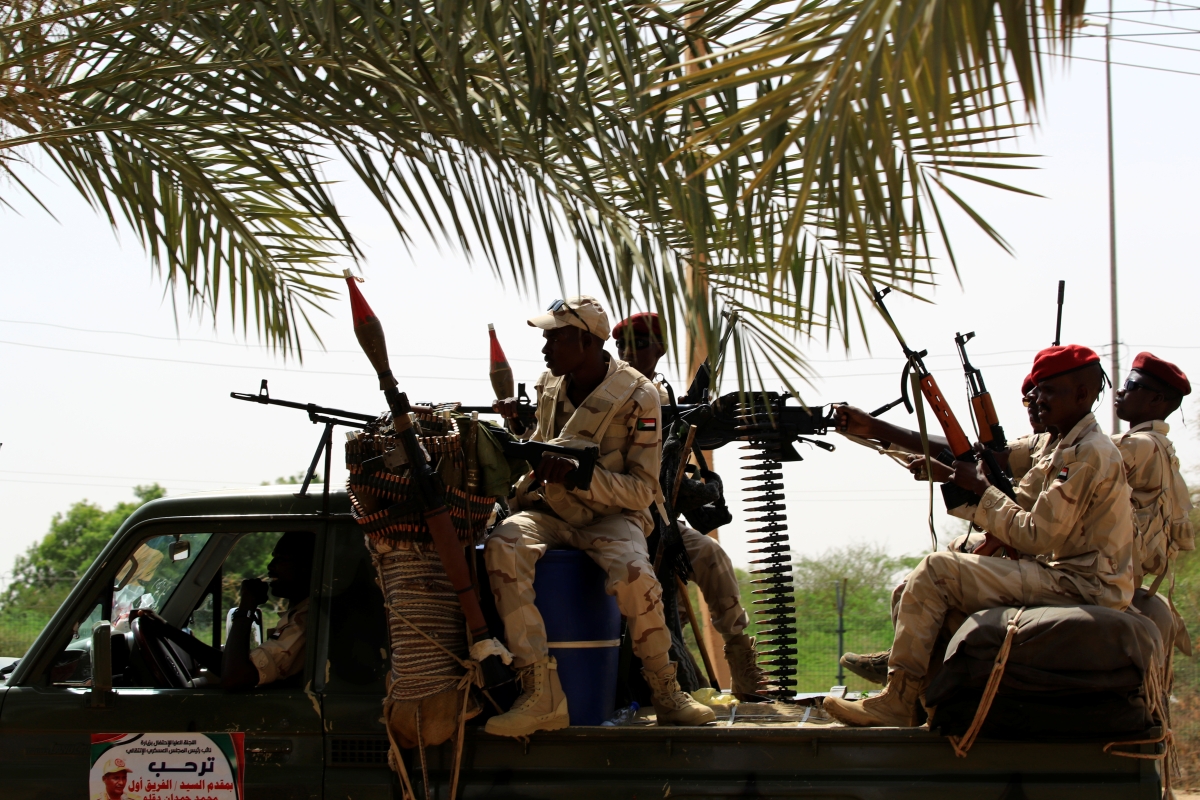U.S. Targets Major Perpetrators of Violence in Sudan
Two weeks before the handover of power, President Joe Biden’s administration has taken its first decisive steps against the main perpetrators of human rights violations in Sudan, the Rapid Support Forces (RSF). Secretary Blinken has recognised their crimes as acts of genocide, and the Treasury Department has imposed sanctions on RSF leader Mohamed Hamdan Dagalo “Hemedti”. The moves can be seen as indirectly targeting the United Arab Emirates, the RSF’s most important sponsor and protector.
.png) Ivor Prickett / Panos Pictures / Forum
Ivor Prickett / Panos Pictures / Forum
What is the RSF?
The paramilitary Rapid Support Force (RSF) was created from Arab militias, the so-called Janjaweed, which had been waging terror campaigns in Sudan’s Darfur since 2003. By the end of Omar al-Bashir’s rule (2019), they had acquired significant military, economic, and political power. They supplied mercenaries to the United Arab Emirates (UAE) for the war in Yemen, took control of much of Sudan’s gold mining, and saw their leader as the future head of the country. “Hemedti” supported the overthrow of al-Bashir in 2019, which secured him a share in the transitional civil-military authority and the opportunity to further expand the RSF and its influence. Before the outbreak of war in Sudan in 2023, the number of RSF fighters reached about 120,000, making it one of the largest private armies in the world. Its core consists of representatives of the nomadic Arab group Rizeghat, from which “Hemedti” originated, volunteers from Arab minorities from Chad, Niger, and the Central African Republic, as well as mercenaries from Ethiopia, South Sudan, and other countries. In the course of the war, which broke out on 15 April 2023, the RSF sought to forcibly change the demographics of Darfur, central Sudan (including the capital, Khartoum) and potentially the northern part of the country, replacing the indigenous inhabitants with their own settlers while transforming the state itself into a loose tribal confederation. It also uses rape as a tool of war. According to Armed Conflict Location & Event Data (ACLED), in 2024 the RSF was responsible for 77% of the violence against civilians in Sudan, particularly in the provinces of North Darfur (in the siege of El Fasher, with a population of 1.5 million, and the deliberate destruction of hospitals), Gezira (forced displacement, poisoning of water), and the Khartoum metropolitan area (occupation of homes, use of torture).
What sanctions have been imposed?
In the nearly two years since the outbreak of the war in Sudan, the U.S. administration has not shown decisiveness in applying measures to pressure its parties, especially compared to its active role in responding to the conflict in Sudan’s Darfur in 2003-2006. The measures taken have been limited and mostly ineffective. By the end of last year, it had imposed sanctions on only six representatives of the RSF and one of the Sudanese army. In February 2024, the position of special envoy to Sudan (Tom Perriello) was created, but without a strong political mandate. On 7 January, the U.S. Treasury Department announced sanctions on RSF leader “Hemedti” and seven related companies. All of them are located in the UAE and were involved in the militia’s financial services, including monetising gold mined in Sudan and deals involving arms supplies and logistics for the militia. In a separate statement, Secretary of State Antony Blinken described the RSF’s actions in Sudan as “genocide”. Blinken recalled that “Hemedti” broke previous commitments to prevent human rights violations by its forces, developed with U.S. mediation (the 2023 Jeddah Declaration; the code of conduct agreed in Geneva in August 2024). The sanctions and designations are intended to make it difficult for RSF leaders to travel and interact abroad, and for any third parties to have business dealings with its affiliated companies. However, there has been no sanctioning of the RSF as an entity or designation as a terrorist organisation, which may follow as a next step.
Will it affect the situation in Sudan and the region?
The U.S. administration’s steps are overdue, as the war in Sudan, initially limited, has spread throughout the country, and the refugee crisis it spawned has grown to the largest in the world: some 12 million Sudanese have left their homes, with a big part of them fleeing the terror of the RSF. Nevertheless, sanctions and the “genocide” designation may help prevent the Libyan scenario in Sudan, that is, the permanent partition of the country. This is timely and relevant since in the face of the RSF’s progressive territorial losses, “Hemedti” and his political allies intended to announce the formation of their own government and civilian administration, which would seek international recognition. In view of the U.S. step, this project loses viability. The U.S. declarations also send a signal to the UAE that the country’s continued support of the RSF, which was one of the reasons for the effectiveness of its militias, will not be tolerated. Further steps are planned in this regard: on 17 January, the White House is expected to declassify data on the UAE’s military support of the RSF, which has continued despite denials by the Emirati authorities.
Will the new policy hold up under the Trump administration?
In recent weeks, pressure has been mounting on the Biden administration to put more effective pressure on the RSF and the UAE not to fuel the war in Sudan. This came from both Democratic and Republican members of Congress. The latter raised the issue as an example of the ineffectiveness of U.S. leadership under the Democrats. One of the lawmakers most involved in the Sudan issue over the years has been Republican Senator Jim Risch, who is now taking over as chairman of the Senate Foreign Relations Committee. Trump himself, at the end of his first term, actively sought to remove Sudan from the list of terror-sponsoring states to help support the country’s transition after the fall of the al-Bashir dictatorship. A change of administration may therefore prove helpful in the development of a coherent and more active U.S. policy toward Sudan, which was lacking under the Biden administration. As of today, Trump’s willingness to confront the UAE, which he sees as an important regional partner crucial to the future of the Middle East, remains unknown. It is possible, however, that he may use his preferred political method and be transactional, such as conditioning agreement on the UAE’s participation in the tentative administration of Gaza, which it seeks, on a change in policy towards Sudan. U.S. pressure will be more effective if it is reinforced by similar moves by the EU. This was signalled last September by the then head of the EEAS, Commissioner Josep Borrell, who announced that the EU would not be a passive witness to “another genocide”.





